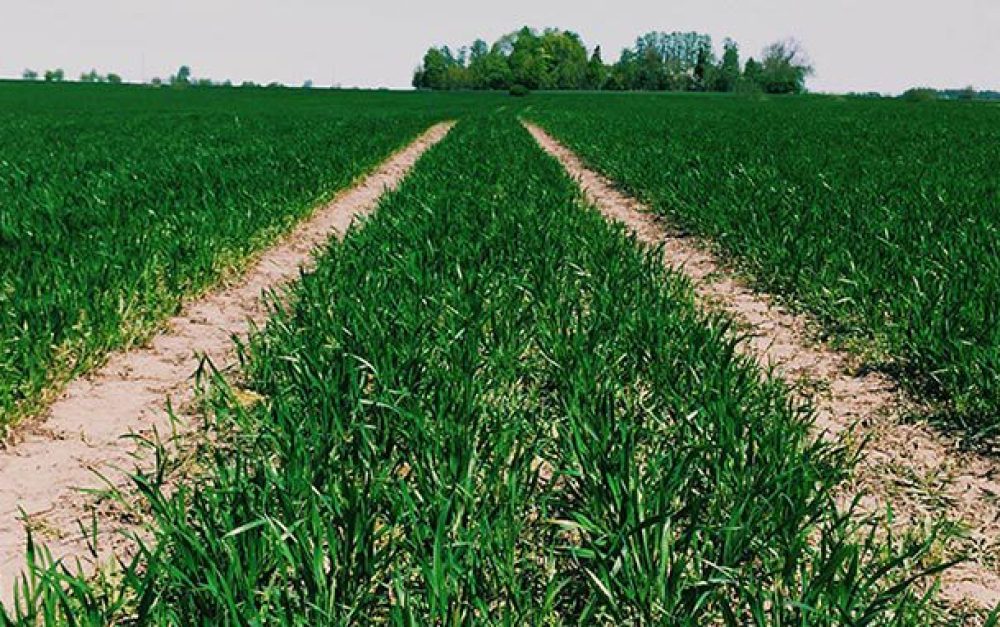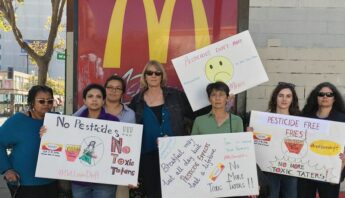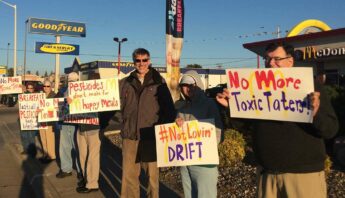Looking back at 2014, I'm proud of the progress we've made on some of our long-standing issues. And, in light of the country's renewed conversations about fairness and justice, it's good to be reminded of how much we can accomplish when we're committed to listening, learning and working together.
Our movement is powered by a diverse, energized network of allies who coalesce around specific values and actions, often over the course of several years. Some of our work moves quickly, and some more slowly than we'd like. But either way, we're clearly making progress.
In just the past year, we've seen movement for meaningful change in several arenas, including:
Farmers and communities across the country are saying no to genetically engineered (GE) crops and the pesticides that go with them. After motivating public outrcy and successfully slowing down the approval for Dow's 2,4-D-resistant crops, PAN and our partners are taking legal action to keep these crops out of the ground. And, despite the incredible amounts of money being spent by Monsanto, Dow and the like to block state initiatives, efforts to label GE food haven't let up. At the local level, allies in Kaua'i are holding the line on landmark legislation mandating that biotech companies reduce and disclose the pesticides they use on GE test fields, and Maui voters decided their county should be GE-free.
For the first time in decades, federal rules protecting the country's two million farmworkers from pesticide harms are moving forward. After years of prodding, the Environmental Protection Agency (EPA) proposed revisions to the Worker Protection Standard. Farmworkers, faith leaders, unions, chefs, health care providers and others met with federal officials and congresspeople, signed petitions and provided detailed comments on EPA's proposed changes to ensure they provide meaningful protections in the field.
Due to public pressure and building momentum, the White House launched an inter-agency Pollinator Health Task Force to take a serious look at the problem of bee die-offs. Advocates and scientists are keeping the pressure on the task force — led by EPA and USDA — for meaningful action on pesticides, a factor science clearly links to declining pollinator populations. Meanwhile, communities across the country aren't waiting for federal decisionmakers; they're taking measures to limit the use of neonicitinoids and other bee-harming pesticides in their neighborhoods, towns and states.
In rural Minnesota, communities facing pesticide drift from potato fields launched the Toxic Taters campaign to persuade McDonald’s to source safer potatoes. Members of the Toxic Taters Coalition, including PAN, presented the issue of pesticide drift from potato fields at local gatherings in six towns and cities. And in October, they held a statewide day of action — including 16 rallies at Minnesota McDonald's locations and a national social media campaign — calling on the corporation to hold its growers accountable for their impacts on local communities.
With our counterparts at PAN Asia & the Pacific, we initiated the Terrible Twenty campaign, making the connections between children's health and exposure to certain harmful pesticides. As part of the PAN International network, we highlighted our long-sought goal of limiting or banning the most highly hazardous pesticides worldwide. Just this month, we worked with allies to garner endorsements from international delegates for a process — led by the UN's Environment Program, Food and Agricultural Organization and the World Health Organization — to consider a global phaseout.
We'll have our work cut out for us in 2015, to be sure. Although we're up against entrenched interests and some of the largest multinational corporations in the world, we are much stronger than the sum of our parts. We are active members of strategic networks and coalitions, and we have an incredible community of supporters in this work with us.
In the coming year, we will continue to link across regions, borders, races and other differences to work for healthy communities and a fair, just food system. I'm ready for the challenges and opportunities on the horizon. I hope you are, too!
Photo: Justus Markus








